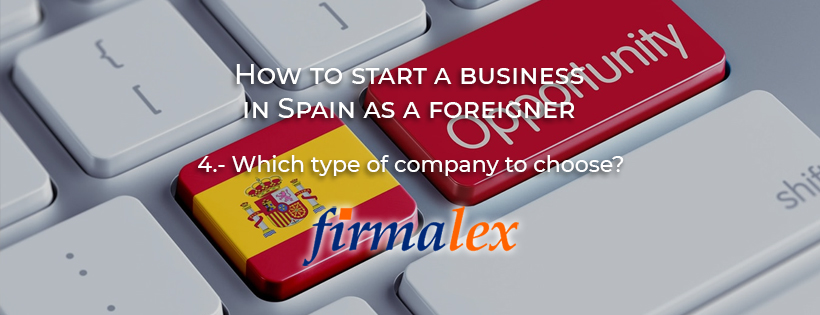This article is part of our guide How to start a business in Spain as a foreigner which you will find in our Starting a Business in Spain section.
Before starting the process of setting up a company, we must decide what type of company it will be. But we are not talking about the business model or the specific project. We are referring to its legal structure.
In Spain, there are different corporate structures, which are defined by the Commercial Code. Each of them has its own characteristics, and understanding their different purposes is crucial. Let us briefly discuss the main ones.
Self-employed
Probably the best option for small companies, as the legal process for its creation is really simple. One of its main advantages is that it does not require any initial investment.
However, being self-employed has an important disadvantage: there is no distinction between the company’s assets and your personal assets. Therefore, you are fully liable for any possible debts of the company.
Who is this structure for? For painters, web designers… For those individuals whose activity does not require a company for their enterprise.
Taxes for the self-employed
As a self-employed person, after registering with the tax authorities, you must declare your income every three months. For example, in January you declare your income for the period from October to December and pay 20% of the income as advance tax.
The form in this case is Form 130. You will always have to fill it in, unless 70% of the people you work for are companies that pay the withholding tax on your behalf.
If you are paying self-employed tax in Spain under the modular system (estimación objetiva, in Spanish), where your income levels are based on estimates rather than actual income, then you have to use Form 131. The form must be completed between the 1st and 20th of each quarter: January, April, July and October.
Then, every April, you have to fill in two forms: one for the last three months and one for the previous tax year. The latter declaration (Declaración de la Renta en el Modelo 100) summarises the taxes you have paid during the year.
As your activities are regulated by the IRPF regime, you may end up paying an unnecessary amount of tax by using this legal structure. And that will be the case if your income is more than 50,000 – 60,000 euros per year.
So, in case you expect to earn more than that, our advice is to opt for a limited company.
Apart from personal income tax (IRPF), you must pay Value Added Tax (VAT) every quarter (Form 303) and fill in an annual VAT return or Form 390, although some goods and services, such as educational services, artistic activities and some forms of freelance writing, are exempt.
All of this can be done online through the Tax Agency. If you supply exempt services, you do not have to file a VAT return and you cannot reclaim VAT on your own expenses.
Limited company (S.L.)
This is undoubtedly the most popular business structure in Spain. Why? Because of its flexibility and ease in the registration process, as it only requires 3,000 euros for the incorporation process as a minimum capital investment.
If you expect to earn more than 60,000 euros, set up a company directly instead of setting up as a self-employed person.
One of its main advantages is that your liability is limited to the capital invested. So, if you have only invested 3,000 euros, that is the maximum amount you can be asked to pay in case of indebtedness.
In this case you will not pay income tax, but corporate tax, which is equivalent to 25% of your profits. A VAT return must also be filed. However, you can benefit from several exemptions that can considerably reduce your taxable income.
That is why we recommend that you rely on a good tax advisor to handle your quarterly and annual returns. You will really save money.
Public limited company (S.A.)
The public limited company is the legal structure reserved for large companies that operate with shares. It is characterised by a much more rigid structure and requires 60,000 euros to set up.
Its main advantage is that it can raise external financing, as the company’s shares can be bought on the stock exchange.
However, we suggest that you start with an S.L. first and then move to a public limited company once you decide to go public.
Branch office
But what if you already have your own company in any other country and want to expand in Spain?
In such cases, opening a branch in Spain is the right way to go. It will give you the opportunity to expand into a new market while leveraging the power of your brand and systems.
If you want to set up a branch of your company, you will need to present a power of attorney and a copy of the public deed of incorporation of the company. If required by your country’s commercial law, you will also need to submit a solvency certificate. In this specific case, if you are the one opening and managing the branch in Spanish territory, you must be resident in the country.
Solve your doubts
✅ Our staff speaks perfectly Spanish, Valencian, English and German with what will be able to communicate with us in your own language and thus clearly resolve your queries.
📍 Denia – Plaza del Convento, 6 – Mezzanine floor door B
📍 Valencia – Calle Creu Roja, 1 – Block 6, Floor 1, door 10 (* only by appointment)
✉📞 Contact: info@firmalex.com – Tel. +34 966 421 416 – Whatsapp +34 622 497 615



